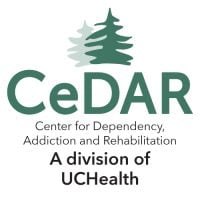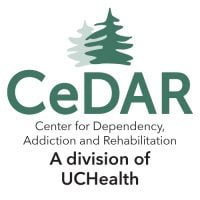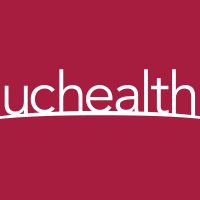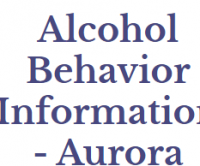Avery Counseling
Drug Rehab Center in Fort Morgan, Colorado
- Substance Abuse
- Opioid Addiction
- Dual Diagnosis
- Drug Addiction
- Alcoholism
Avery Counseling in Fort Morgan, Colorado provides evidence-based addiction treatment services including individual and family therapy, medication-assisted treatment, and referral to community resources, and is accredited by CARF and licensed by the state of Colorado.
About Avery Counseling in Colorado
Avery Counseling in Fort Morgan, Colorado provides comprehensive outpatient therapy services to individuals, couples and families. Founded by Dr. John Avery, their mission is to ensure the highest quality care in the prevention, treatment, and long-term management of addictions. The multidisciplinary team of professionals includes addiction counselors, clinical psychologists, psychiatrists, and nurses. They provide full-scale assessments, group and individual therapy, education and support groups, and family counseling.
Avery Counseling offers evidence-based treatment for substance and alcohol use disorders, as well as mental health services for addiction. Their specialized addiction treatment programs are tailored to the individual needs of the client, based on the initial assessment and subsequent monitoring. The services range from individual therapy and family counseling to relapse prevention and continuing care. They provide additional services such as medication-assisted treatment and referral to other community resources.
Avery Counseling is accredited by the Commission on Accreditation of Rehabilitation Facilities (CARF) and licensed by the state of Colorado to provide addiction treatment services. They have also received the Outstanding Achievement Award from the National Association of Addiction Treatment Providers (NAATP) recognizing their excellence in providing high-quality care. They offer a variety of payment options and accept insurance plans, as well as sliding scale fees for those in need.
Genders
Ages
Modality
Additional
Conditions and Issues Treated
Substance Abuse Treatment is important when getting sober, as it helps addicts learn the skills they need to live a clean life. There are many different kinds of recovery treatment, including but not limited to medication-assisted therapy, behavioral therapeutic approaches, self-help groups, and counseling. Each treatment has its benefits that help addicts recover.
Counseling can help addicts learn the skills they need to live sober lives. It can be used to treat underlying mental health issues, like depression or anxiety, that could lead to relapse. Counseling can also help people find work, deal with family problems, and learn to manage living without drugs.
With so many people addicted to opioids, we need to help those who want to quit. The cycle begins when opioid addicts take opioids for a painful injury. When someone starts taking their medication differently or in excess, it means they’re addicted and at risk of overdosing.
In , detoxing from these types of treatments is the most effective way to beat this. Most facilities begin with medical assistance and then provide counseling services; rehabilitation follows after successful treatment.
Dual diagnosis refers to someone who has both an addiction and a mental or emotional illness. Dual diagnosis treatment includes therapy for both issues simultaneously, allowing for effective treatment of either.
Sometimes people with addiction disorders also have co-occurring disorders like depression, anxiety, bipolar disorder, etc. These require specialized treatment programs that address both drug and alcohol addiction as well as psychiatric illnesses. Some rehabilitation facilities provide patients with co-occurring disorders a program with highly integrated services and a clean, distraction-free environment.
Levels of Care Offered
This center offers a variety of custom treatment tailored to individual recovery. Currently available are Drug Rehab, Dual-Diagnosis, Outpatient, with additional therapies available as listed below.
Alcohol or drug addiction, or co-occurring disorders, are treated in an outpatient program. The patient must attend therapy and other programs at the facility but can return home each night.
Outpatient treatment allows recovering addicts to live at home while receiving addiction treatment. Outpatients can attend group sessions for a few hours per week. Outpatients may also continue to work full time and study/attend school without interruption if they choose.
Therapies & Programs
Different people react differently to various treatment options. Some drug rehabilitation centers offer individualized treatment that caters to the specific needs of a drug addict. The best treatment option varies on an individual depending on the type of drug abused, life history, medical condition of the person, social circumstances, and the environment they live in now.
When a person enters drug rehab, they usually have anti-drug associations such as withdrawal symptoms, stress, cravings, etc. The first step of drug rehab is to detoxify the body from any residual substances in it. Drug rehabilitation centers usually employ trained medical professionals to help in this process. Usually, the initial detoxification lasts for five days, where the person is monitored under close supervision.
Attending group therapy at Avery Counseling in , is a useful way for those seeking sobriety to realize they aren’t the only one going through it.
This is when a group of people on different recovery phases get together and talk about what they’re going through, their triggers, successes, and failures. This can include alternative types of therapies too! Group therapy may occur on an outpatient or inpatient basis with groups that have no pre-existing relationships outside the session, unlike support groups where everyone already knows each other beforehand.
Cognitive Behavioral Therapy is a type of psychotherapy that helps people address the thoughts and behaviors that may have led to their addiction. It also helps change negative thoughts into positive ones and promotes healthy communication between addicts and those around them. CBT is an efficient treatment for individuals suffering from all sorts of addictions.
Cognitive Behavioral Therapy (CBT) focuses on the underlying thoughts and behaviors that caused the problem of addiction in the first place and may cause a relapse. Negative feelings are common in drug abuse disorders, but they can lead to co-occurring disorders if not recognized. CBT involves strategies that help to change the behavior pattern by restructuring negative thoughts into positive ones. It helps to remove these feelings, and it provides long-term benefits. Also, CBT promotes self-awareness, self-control and can be administered as a mono-therapy or as part of combination therapy.
The use of Rational Emotional Behavior Therapy for addicts has been shown to have positive and desirable outcomes. It is a form of specific counseling that replaces negative and self-limiting thoughts with positive and productive behaviors. Self-defeating thoughts and habits can limit your possible successes. Some examples of this are procrastination, unhealthy eating, and angry outbursts. You may not be aware that some unhealthy behaviors and thoughts are sabotaging your potential accomplishments.
Payment Options Accepted
For specific insurance or payment methods please contact us.
Additional Details
Specifics, location, and helpful extra information.
Fort Morgan, Colorado 80701 Phone Number(970) 370-3940 Meta DetailsUpdated November 25, 2023
Staff Verified
Avery Counseling Patient Reviews
There are no reviews yet. Be the first one to write one.
Fort Morgan, Colorado Addiction Information
The Centennial State has slipped to a ranking of 12th in the country for drug abuse. Each year around 24% of the state's population uses illegal drugs while nearly 5% of its population abuses alcohol. Substance-related deaths in Colorado were responsible for 15.12% between 2008 and 2017. Fortunately, Colorado drug and alcohol addiction treatment are available to help a person overcome addiction.
Fort Morgan is a city in Colorado with a population of 11,315. More than four people die every day due to drug abuse in and around the city. Of the 1,531 drug overdose fatalities in Fort Morgan in 2016, 548 (36%) were due to fentanyl and other synthetic opioids. Different treatment programs are available in Fort Morgan. Some people may choose to attend an inpatient facility. Others may choose an outpatient program
Treatment in Nearby Cities
- Montrose, CO (250.1 mi.)
- Limon, CO (68.3 mi.)
- Greenwood Village, CO (75.2 mi.)
- Estes Park, CO (91.4 mi.)
- Salida, CO (167.0 mi.)
Centers near Avery Counseling




The facility name, logo and brand are the property and registered trademarks of Avery Counseling, and are being used for identification and informational purposes only. Use of these names, logos and brands shall not imply endorsement. RehabNow.org is not affiliated with or sponsored by Avery Counseling.



